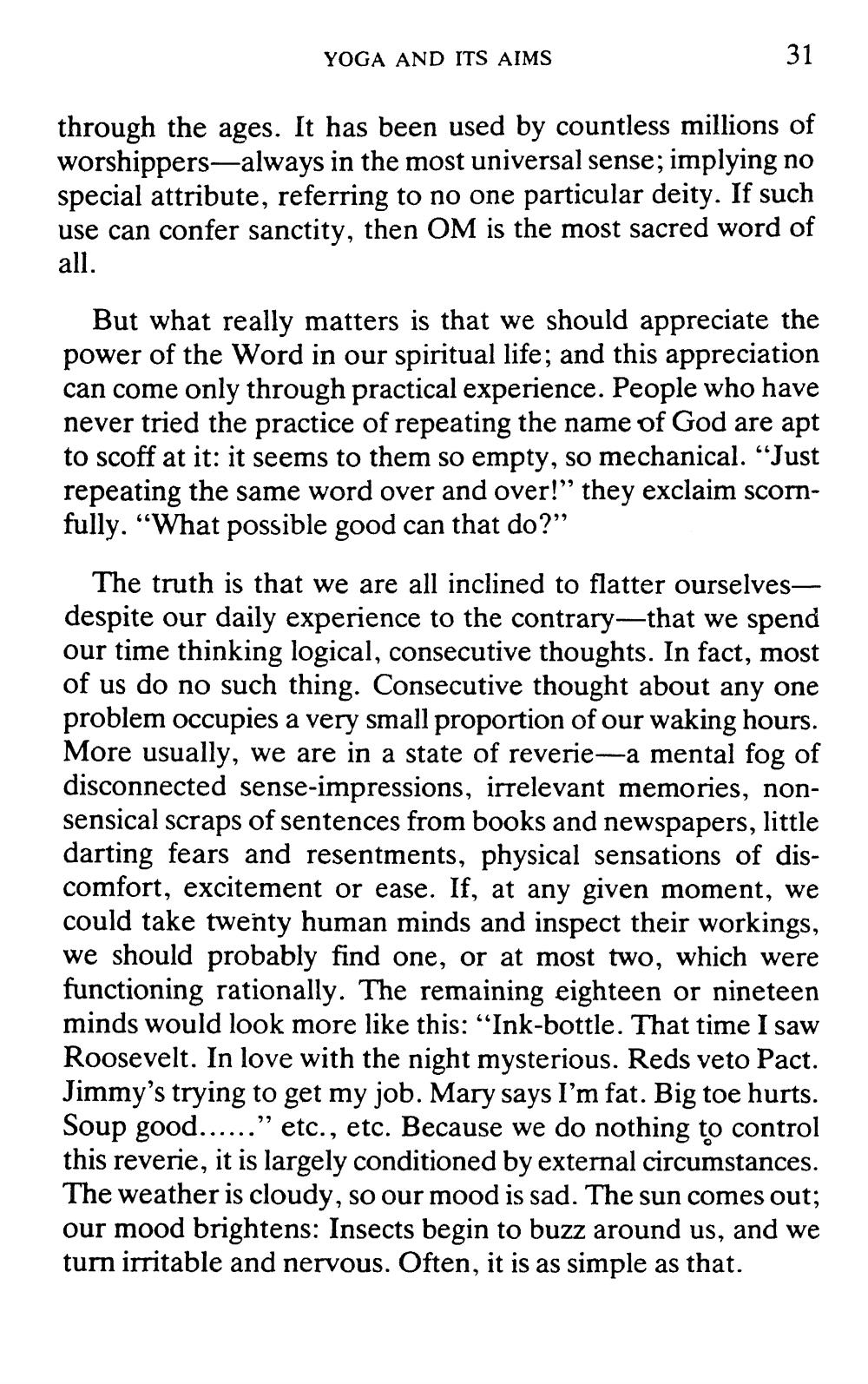________________
YOGA AND ITS AIMS
through the ages. It has been used by countless millions of worshippers—always in the most universal sense; implying no special attribute, referring to no one particular deity. If such use can confer sanctity, then OM is the most sacred word of all.
But what really matters is that we should appreciate the power of the Word in our spiritual life; and this appreciation can come only through practical experience. People who have never tried the practice of repeating the name of God are apt to scoff at it: it seems to them so empty, so mechanical. “Just repeating the same word over and over!” they exclaim scornfully. “What possible good can that do?”
The truth is that we are all inclined to flatter ourselves— despite our daily experience to the contrary—that we spend our time thinking logical, consecutive thoughts. In fact, most of us do no such thing. Consecutive thought about any one problem occupies a very small proportion of our waking hours. More usually, we are in a state of reverie-a mental fog of disconnected sense-impressions, irrelevant memories, nonsensical scraps of sentences from books and newspapers, little darting fears and resentments, physical sensations of discomfort, excitement or ease. If, at any given moment, we could take twenty human minds and inspect their workings, we should probably find one, or at most two, which were functioning rationally. The remaining eighteen or nineteen minds would look more like this: "Ink-bottle. That time I saw Roosevelt. In love with the night mysterious. Reds veto Pact. Jimmy's trying to get my job. Mary says I'm fat. Big toe hurts. Soup good......” etc., etc. Because we do nothing to control this reverie, it is largely conditioned by external circumstances. The weather is cloudy, so our mood is sad. The sun comes out; our mood brightens: Insects begin to buzz around us, and we turn irritable and nervous. Often, it is as simple as that.




